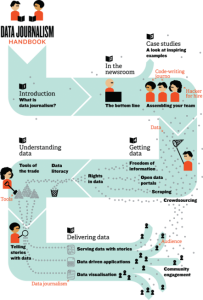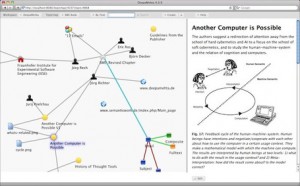
The Data Journalism Handbook is Out
6 months ago at Mozilla Festival 2011, the Data Journalism Handbook was born. Thanks for your interest in the book – I have great pleasure in announcing that the Handbook is now live!
The Handbook features contributions from over 70 leading practitioners of data journalism from every corner of the globe, from Japan to Finland, Nigeria to the US and from leading news outlets such the New York Times, Zeit Online, the BBC and the Guardian. The Handbook is an open educational resource, under a creative commons licence (CC-BY-SA) so please share it with your friends and remix it. We hope that it will encourage many budding data journalists to look at data as a source and give them courage to tackle it, as well as showcasing some great examples of journalism using data as inspiration for future stories.
You can find the handbook at: http://datajournalismhandbook.org/
Also available for pre-order is the e- and print version from O'Reilly Media – http://oreil.ly/ddj-e-print – so if you are interested in a version to read offline, take a look!
We will soon have the facility to submit feedback via the website if you spot any errors or have any improvements for the next version,
—
Lucy Chambers
Infographic impresario Lulu Pinney created this superb poster, which gives an overview of the contents of the Data Journalism Handbook.








